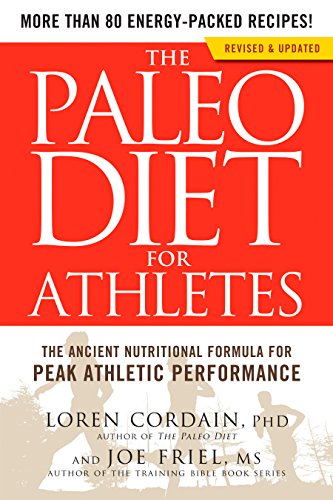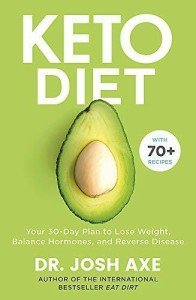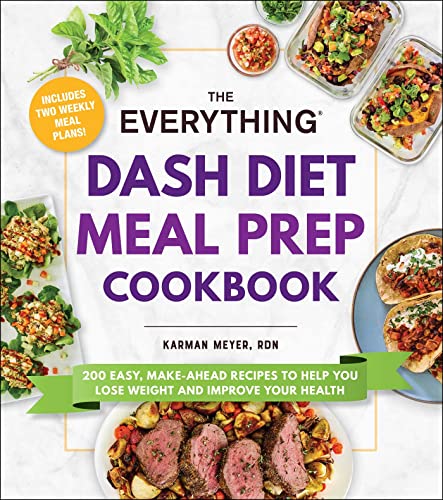Keto or Paleo The Ultimate Diet Battle
When it comes to popular diets, the ketogenic (keto) and paleolithic (paleo) diets have gained significant attention in recent years. Both diets claim to offer numerous health benefits and weight loss potentials, but what science supports their claims?
The Keto Diet:
The ketogenic diet focuses on high-fat, low-carbohydrate, and moderate-protein intake. By drastically reducing carbohydrate intake, the body enters a state of ketosis, where it switches from using carbohydrates as the primary fuel source to utilizing stored fat. The rapid fat breakdown results in the production of ketones, which serve as an alternative energy source and fuel the body and brain.
Studies have shown that the keto diet may lead to significant weight loss, improved insulin sensitivity, and better blood glucose control. Additionally, some research suggests it may have potential in managing certain neurological disorders like epilepsy and Alzheimer's disease. However, critics argue that the long-term effects of this high-fat diet are not yet well understood, and it may impact heart health due to increased consumption of saturated fats.
$25.75
$23.69
4.85 out of 5 starsBestselling Keto Diet Cookbook
Discover delicious and healthy ketogenic recipes for effective weight loss in our bestselling Keto Diet Cookbook
Product information
Product Review Score
Product links
The Paleo Diet:
The paleolithic diet aims to mimic the eating habits of our ancient ancestors. It emphasizes whole foods, including lean meats, fish, fruits, vegetables, nuts, and seeds while excluding processed foods, grains, legumes, and dairy products. Proponents believe that this diet better aligns with our genetic makeup, promoting weight loss, reducing inflammation, and improving overall health.
While scientific evidence on the paleo diet is limited, some studies suggest potential benefits such as weight loss, improved glucose control, and better blood lipid profiles. Others argue that the strict restrictions on certain food groups may lead to nutrient deficiencies, particularly in calcium and vitamin D. It is important to note that with any diet, individual results and experiences may vary based on factors like adherence and personal health conditions.
While both keto and paleo limit carbohydrate intake, the key difference lies in the recommended fat consumption. Keto emphasizes a high-fat intake, often including sources like avocados, nuts, and oils, to induce ketosis. On the other hand, paleo encourages a moderate fat intake, prioritizing lean sources of protein and natural fats from animal products and plant sources.
$17.93
4.13 out of 5 starsPaleo Diet for Athletes: Optimize Athletic Performance with Ancient Nutrition
Unlock your full potential and enhance your athletic abilities with the power of ancient nutrition through the Paleo Diet for Athletes
Product information
Product Review Score
Product links
Why People Love the Keto Diet: Insights from Real Keto Dieters
The ketogenic diet, known for its low carbohydrate and high-fat approach, has captured the attention of many seeking effective ways to lose weight and improve their health. But what is it about this diet that resonates with so many? In this article, we explore some of the key reasons why people love the keto diet, featuring insights from individuals who have experienced its benefits firsthand.
1. Significant Weight Loss
One of the most compelling reasons people gravitate toward the keto diet is its potential for rapid and substantial weight loss. By drastically reducing carbohydrate intake, the body enters a metabolic state called ketosis, where it begins to burn fat for fuel instead of glucose. This switch can lead to impressive weight loss results.
Example from a Keto Dieter:

Sarah, a 34-year-old teacher, shares her journey: “I initially started the keto diet to lose weight for my wedding, and I was amazed at how quickly the pounds came off. I lost 30 pounds in just three months! The keto diet not only helped me stick to my goals, but it also made me feel more energized and focused throughout the day.”
2. Increased Energy Levels
Many individuals on the keto diet report experiencing increased energy levels. Once the body adapts to burning fat for fuel, it often leads to more sustained energy without the sugar crashes that can occur with high-carb diets.
Example from a Keto Dieter

James, a software engineer, states, “After a few weeks on the keto diet, I noticed that my energy levels were stable throughout the day. I wasn’t experiencing the afternoon slumps I used to face when I was eating a lot of carbs. I felt clear-headed and more productive!”
3. Improved Mental Clarity
In addition to physical energy, many keto dieters report enhanced mental clarity and focus. Some studies suggest that ketones, produced during ketosis, can be a more efficient energy source for the brain, potentially leading to improved cognitive function.
4. Appetite Control
The high-fat content of the keto diet often leads to reduced hunger and more stable blood sugar levels. Many people find that they can go longer between meals without feeling ravenous or experiencing cravings, making it easier to stick to their dietary goals.
5. Simplified Meal Planning
For many, the structure of the keto diet simplifies meal planning. With a focus on whole foods, fats, and proteins, dieters often find it easier to prepare meals. This simplicity can help individuals avoid the decision fatigue associated with more complex diets.
6. Community and Support
The sense of community among keto dieters is another appealing factor. Online forums, social media groups, and local meet-ups allow individuals to connect, share recipes, and support each other on their keto journeys. This camaraderie can be motivational for those who might otherwise struggle with dietary changes.
Conclusion
The keto diet continues to draw in many for its potential benefits, including significant weight loss, increased energy levels, improved mental clarity, appetite control, and a supportive community. As illustrated by Sarah and James, personal experiences vary, but the overall positive feedback highlights the diet's potential impact on both physical and mental well-being.
Before embarking on any significant dietary change, it's essential to consult with a healthcare professional to ensure it's suitable for your individual health needs. With proper guidance and support, the keto diet could be the key to achieving your health and wellness goals.
References
- Sarah's Keto Journey - Personal testimony from a keto dieter.
- James' Experience with Keto - Personal testimony from a keto dieter.
By sharing these stories and insights, we hope to provide a clearer understanding of why the keto diet appeals to so many individuals seeking to transform their health and lifestyle.
Why People Love the Paleo Diet: Insights from Real Paleo Dieters
The paleo diet often dubbed the "caveman diet," has garnered a loyal following among those seeking to improve health, lose weight, and embrace a more natural approach to eating. Adopting a diet based on whole, unprocessed foods that our ancestors would have consumed resonates with many modern eaters. Here, we explore why people love the paleo diet, featuring insights from individuals who have successfully integrated it into their lives.
1. Emphasis on Whole Foods
One of the main attractions of the paleo diet is its focus on whole, nutrient-dense foods. By eliminating processed foods, refined sugars, and artificial ingredients, those on the paleo diet often feel they are consuming a healthier, more balanced diet.
Example from a Paleo Dieter

Emily, a 28-year-old graphic designer, shares her experience: “Since starting the paleo diet, I’ve noticed a significant improvement in how I feel overall. I love that I’m eating real foods, like fruits, vegetables, meats, and nuts. I feel good knowing I’m nourishing my body with nutrients rather than empty calories.”
2. Weight Loss Success
Many people find that adopting a paleo lifestyle leads to effective weight loss. The diet encourages the consumption of high-protein foods and healthy fats, which can help to control hunger and promote a feeling of fullness, making it easier to cut back on unhealthy snacking.
Example from a Paleo Dieter

Mark, a 45-year-old father of two, explains, “I lost 25 pounds in just a few months after going paleo. I was surprised at how my cravings for junk food disappeared when I started eating clean and whole foods. The weight just came off naturally!”
3. Increased Energy Levels
Paleo dieters often report heightened energy levels, which they attribute to the elimination of processed foods and sugars that can lead to energy crashes. Instead of relying on quick fixes, such as sugary snacks, they focus on more stable sources of energy through whole foods.
4. Improved Digestion
Many individuals have found that the paleo diet promotes better digestion. By avoiding gluten and processed grains, some people experience relief from bloating, gas, and other digestive issues.
Example from a Paleo Dieter

Jessica, a 32-year-old fitness enthusiast, comments, “Switching to the paleo diet helped clear up my digestive problems. I used to deal with regular bloating after meals, but since I cut out gluten and processed foods, my stomach feels so much better!”
5. Flexibility and Variety
While the paleo diet has specific guidelines, many followers appreciate its flexibility. With a wide array of fruits, vegetables, proteins, and healthy fats to choose from, individuals can enjoy a diverse and satisfying range of meals, making the diet easier to maintain long-term.
6. Strong Sense of Community
The paleo diet also fosters a sense of community among its followers. Many dieters join online groups, attend workshops, or participate in local meetups where they share recipes, tips, and support each other on their health journeys. This sense of belonging can be motivational and encouraging.
Conclusion
The paleo diet appeals to many for several reasons, including its emphasis on whole foods, successful weight loss, improved energy levels, better digestion, flexibility, and community support. As illustrated by the experiences of Emily, Mark, and Jessica, adopting a paleo lifestyle can lead to meaningful changes in health and well-being.
For anyone considering the paleo diet, it's essential to consult a healthcare professional, particularly if you have existing dietary restrictions or health conditions. With thoughtful preparation and commitment, the paleo diet can be a fulfilling and transformative path toward a healthier lifestyle.
References
- Emily's Paleo Experience - Personal testimony from a paleo dieter.
- Mark's Weight Loss Journey on Paleo - Personal testimony from a paleo dieter.
By sharing these stories and insights from real individuals, we hope to illuminate the reasons behind the growing popularity of the paleo diet and inspire others to explore its benefits.
Weight Loss Showdown: Which Diet Reigns Victorious?
Ultimately, the choice between Keto and Paleo depends on individual needs and preferences. Keto may be more suitable for those who can adhere to a strict low-carb, high-fat diet, while Paleo offers a balanced and sustainable approach that allows for a wider variety of foods. Consulting with a healthcare professional or a registered dietitian is highly recommended before starting any diet plan to ensure it aligns with specific goals and health conditions.
Find out more about the keto diet here
Discover more about the Paleo diet here











